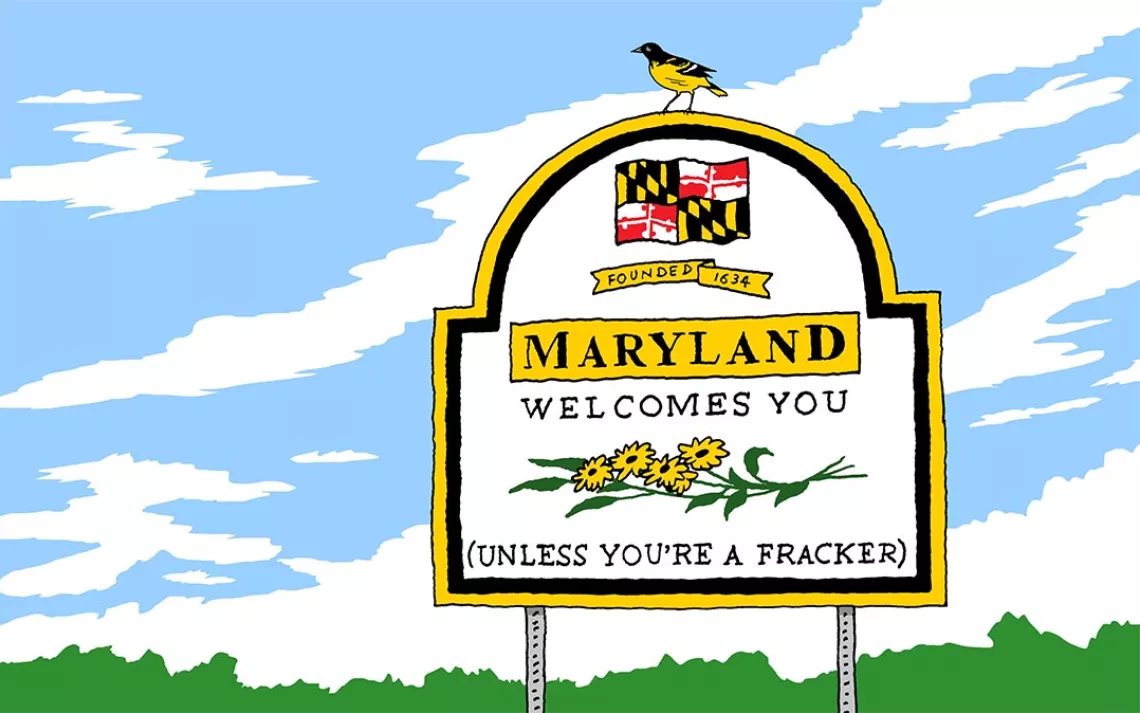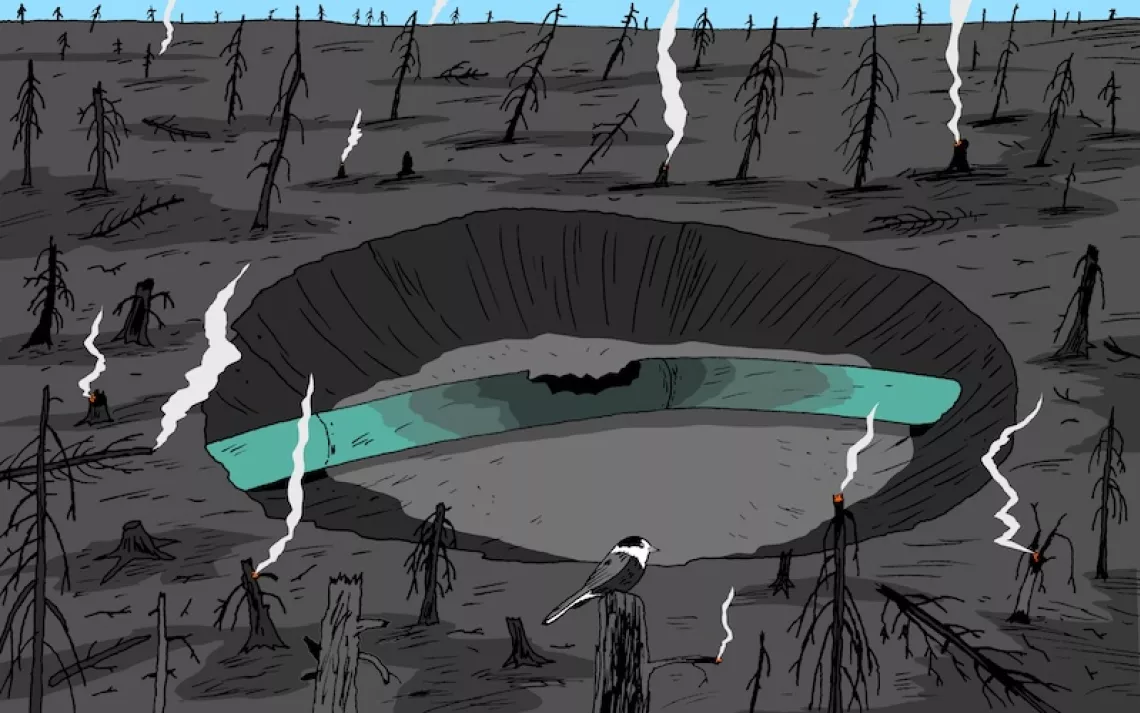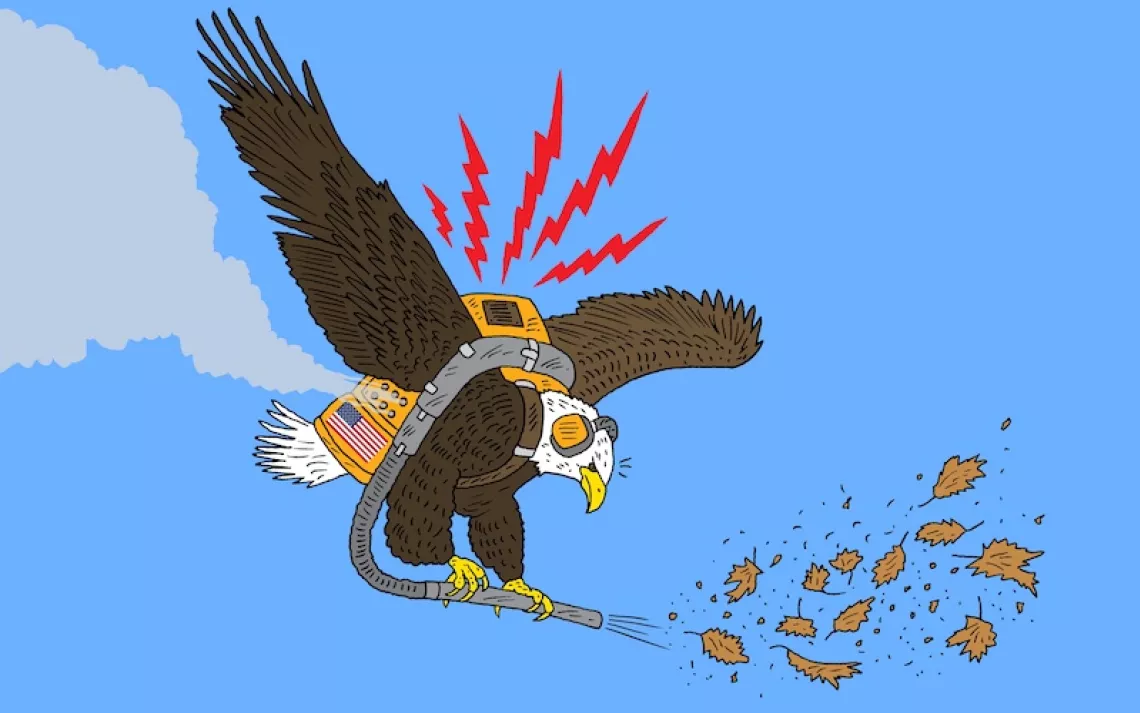Environmental News ICYMI
A weekly roundup for busy people

ILLUSTRATION BY PETER ARKLE
Maryland bans fracking. It's the second state to do so.
After a thousand years of stability, warmer temperatures are causing the cherry trees in Kyoto, Japan, to flower 11 days earlier.
PacRim Coal LP, the company that has been seeking for decades to develop a huge open-pit coal mine under a salmon stream in Chuitna, Alaska, abandons the project.
To save money, the Kentucky Coal Mining Museum in Benham, Kentucky, is converting to solar power.
European energy companies pledge not to build any more coal-fired power plants after 2020.
Scotland produces a record 1.2 million megawatt-hours of wind energy in March, enough to satisfy the needs of 136 percent of Scottish households.
PacificCorps will spend $3.5 billion to install 1.1 gigawatts of new wind in Wyoming by 2020, nearly doubling that windy state’s installed capacity.
The U.S. Fish and Wildlife Service removes two species of parrot—the scarlet-chested parrot (Neophema splendida) and the turquoise parrot (Neophema pulchella)—from the endangered-species list, finding that their populations are now stable.
Tesla breaks sales records, selling 25,000 EVs in the first three months of 2016. The company is now valued higher than Ford and closely behind General Motors.
Japan concludes its annual whaling season, ostensibly in the name of scientific research, with a catch of 333 minke whales.
To protect its limited water resources, El Salvador bans all metal mining.
Scott Wagner, a Republican state senator and gubernatorial candidate in Pennsylvania, suggests that climate change is caused by humans’ “warm bodies.”
This is a weekly edition of "Up to Speed," an environmental news roundup for short attention spans. For more, go to sierraclub.org/uptospeed.
 The Magazine of The Sierra Club
The Magazine of The Sierra Club






